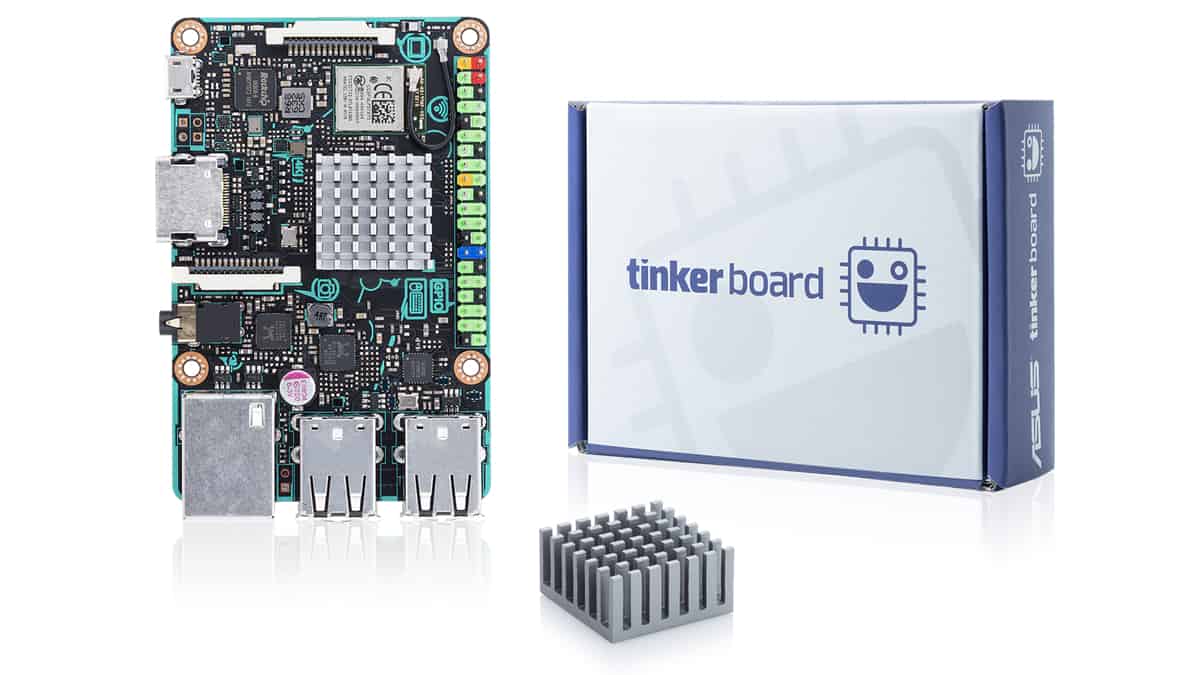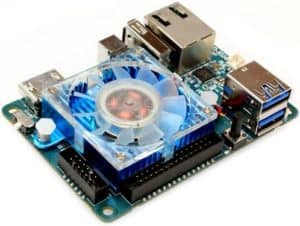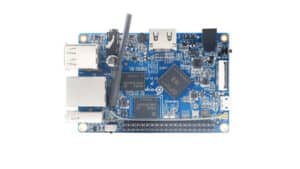Best Raspberry Pi alternatives for emulation in 2024

Raspberry users are as wide as you can imagine, and the number of people using it for gaming solutions is amazing. In this post, we will bring you the best Raspberry Pi alternatives for emulation in 2023.
You see, the Raspberry Pi has become a go-to device for DIYers, makers, and gamers alike, offering a compact and versatile platform for all sorts of projects. As the community has grown, so has the number of Raspberry Pi models, each with its unique set of features and capabilities.
But when it comes to emulations, there are a few standout models that truly shine. So, let’s dive in and check out the best options for emulation enthusiasts who want to experience the joy of retro gaming or even some modern gaming on a Raspberry Pi.
Products at a Glance
How we picked the best Raspberry Pi alternatives for emulation
In our quest to find the best Raspberry Pi alternatives for emulation in 2023, we put a lot of thought and effort into our selection process. Our aim was to identify models that not only deliver top-notch emulation but also cater to a variety of user needs and preferences.
We started by researching the latest Raspberry Pi models and closely examining their specifications. Then, we focused on key factors such as processing power, GPU capabilities, RAM, and storage options. As these are all crucial components for a smooth emulation experience. We also considered the number of available ports and connectivity options, as these are essential for hooking up peripherals like controllers and displays.
Next, we delved into the community and software support for each Raspberry Pi model. A strong community presence means better access to resources, troubleshooting help, and gaming platform compatibility. Making it easier for users to enjoy their software. We also took note of the range of emulators and gaming platforms supported by each model, as this directly affects the variety of games you can play.
We then compared the prices of each Raspberry Pi, keeping in mind that different users have different budget constraints. Our goal was to find models that offer great value for money, whether it’s a more affordable option for budget-conscious gamers or a higher-end model for those looking to splurge on their setup.
Lastly, we scoured reviews and user feedback to gather insights on real-world gaming experiences with each Raspberry Pi model. This helped us understand any potential issues or limitations that might not be evident from the specifications alone.
Product Reviews
- Powerful GPU
- Ample RAM
- Gaming-focused design
- Higher price
- Limited GPIO pins
- Power consumption
The ASUS Tinker Board S is hands down the best overall Raspberry Pi alternative for emulation in 2023. This powerful single-board computer (SBC) is designed specifically with users in mind, delivering impressive performance and an extensive set of features that cater to the gaming community.
What makes the Tinker Board S stand out is its robust GPU and ample RAM, which enable it to handle even the most demanding gaming applications. Whether you’re playing modern games or indulging in some nostalgic classics, this board can tackle it all with ease.
One of the key aspects that makes the ASUS Tinker Board S a top choice is its compatibility with a wide range of gaming platforms, giving you the freedom to explore various gaming ecosystems. Moreover, it supports up to 4K resolution, ensuring you get crisp, clear visuals for an immersive gaming experience.
In a nutshell, the ASUS Tinker Board S is the cream of the crop when it comes to Raspberry Pi alternatives for emulation. Its powerful hardware, broad compatibility, and exceptional performance make it an excellent choice for those looking to level up their setup in 2023.
- Affordable
- Impressive performance
- Versatile design
- Limited community support
- Less user-friendly
- Heats up during heavy use
If you’re a gamer on a budget, the Odroid-XU4 is an excellent Raspberry Pi alternative for emulation. This cost-effective single-board computer is powered by a Samsung Exynos 5422 octa-core processor, which combines impressive performance with energy efficiency. With 2GB of LPDDR3 RAM and a Mali-T628 MP6 GPU, you can expect smooth gameplay across a variety of platforms.
Additionally, the Odroid-XU4 offers a range of connectivity options, including USB 3.0, HDMI, and Gigabit Ethernet, making it easy to set up your system. With support for popular gaming platforms such as RetroPie and Recalbox, you’ll have access to a vast library of classic and modern games to enjoy. Overall, the Odroid-XU4 is a fantastic Raspberry Pi alternative for emulation that won’t break the bank.
- Wide compatibility
- Good performance
- Affordable
- Limited documentation
- Less community support
- May require more setup
When it comes to classic emulation, the Raspberry Pi 4 Model B is an outstanding choice. Equipped with a 1.5 GHz quad-core ARM Cortex-A72 processor, this Raspberry Pi model offers a significant performance boost compared to its predecessors. With up to 8GB of LPDDR4 RAM, you can run multiple emulators and games simultaneously without any hiccups.
The Raspberry Pi 4 Model B supports various operating systems and gaming platforms, including RetroPie, Recalbox, and Batocera, ensuring that you have access to a vast library of retro games from arcade classics to console favorites. Its dual-display support also enables you to set up a multi-screen gaming experience for added immersion.
Its compact form factor and robust community support make it a popular choice among retro gaming enthusiasts. In addition, the Raspberry Pi 4 Model B features USB 3.0 ports and Gigabit Ethernet, providing faster data transfer and improved networking capabilities for online gaming and content streaming.
If you’re looking to relive the golden age of gaming or introduce a new generation to the joys of retro gaming, the Raspberry Pi 4 Model B is a fantastic option to consider. With its impressive performance, compatibility with numerous gaming platforms, and strong community support, you’ll have everything you need to dive into the world of classic gaming.
- Highly portable
- Built-in screen and keyboard
- Unique form factor
- Lower performance
- Smaller game library
- Limited storage
The PocketCHIP is a unique and highly portable option for those who enjoy gaming on the go. This Raspberry Pi alternative features a 1 GHz ARM Cortex-A8 processor and 512MB of RAM, making it capable of handling a variety of classic emulators and games.
While its performance may not be as powerful as the other options on this list, it’s perfect for casual gaming and quick gaming sessions when you’re out and about. One of the defining features of the PocketCHIP is its compact design and built-in 4.3-inch touchscreen display. This makes it incredibly easy to carry around in your pocket or bag, allowing you to enjoy your favorite games wherever you go.
It also includes a QWERTY keyboard, making text input and game controls more accessible.
The PocketCHIP supports several gaming platforms like PICO-8, which offers a plethora of retro-style games and even allows you to create your own games. Additionally, you can install RetroPie or other emulation software to expand your gaming library further.
For gamers who value portability and the ability to play their favorite retro games on the go, the PocketCHIP is an excellent choice. While it may not be as powerful as other options on this list, its unique form factor and built-in display make it an attractive option for those who prioritize convenience and portability in their gaming experience.
Features and considerations
When it comes to finding the perfect Raspberry Pi for emulation, there are a few key features and considerations you should keep in mind. First and foremost, think about the performance you need for your emulation projects. This means looking at the processor, GPU, and RAM capabilities of the Raspberry Pi model you’re considering. More powerful models will easily handle demanding games, while less powerful models might struggle with more resource-intensive titles.
Another important aspect to consider is compatibility with gaming accessories and peripherals. Make sure the Raspberry Pi you choose has enough USB ports, HDMI output, and other necessary connections to hook up your controllers, displays, and other gaming gear.
Also, think about whether you want to use your Raspberry Pi for gaming exclusively or if you’ll need it for other projects too. Some models might have features that are better suited for specific tasks or more versatile for various projects.
Storage is another crucial factor, as games can take up a significant amount of space, especially if you plan on having a large library. Consider the available storage options and whether you’ll need to expand with an external storage solution.
Finally, don’t forget about the community and software support for the Raspberry Pi model you’re interested in. A strong community means you’ll have access to plenty of resources, tutorials, and help when needed, while software support ensures compatibility with various gaming platforms and emulators.
Our Verdict
In conclusion, choosing the best Raspberry Pi alternative for emulation in 2023 depends on your preferences and specific needs.
The ASUS Tinker Board S stands out as the best option with its powerful GPU and RAM, designed for emulation enthusiasts. For those on a budget, the Odroid-XU4 offers impressive performance at a lower cost.
Retro gaming fans will find the Orange Pi PC Plus to be an excellent choice for classic emulation, while the PocketCHIP delivers a unique and portable gaming experience. Whichever option you choose, these Raspberry Pi alternatives will surely elevate your gaming experience in 2023.





